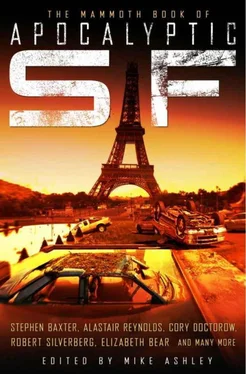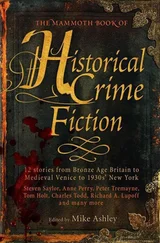I jerked upright so fast, I bumped into the steering wheel. I must have been dozing, dreaming. How clear Warren was, his hair thinning just a touch, a little too long, the color of wet sand; that day he had a suntan and looked almost ruddy. A big-faced ruddy man who looked as if he should be out plowing, or putting a roof on a building, or something else physically demanding. A sailor, he would have made a fine sailor. I can’t see him now; my imagination is faulty in that I can’t see images with any sharp detail. Only my dreams re-create with exactitude the people I have loved. My parents live on in my dreams; Warren is there; the children, but they won’t show themselves to my waking mind. I have only feelings, impressions, nuances that have no names. Warren is a loving presence, a comforting presence, bigger in my mind than ever in person, stronger, more reassuring, strangely more vulnerable so that I feel I have to protect him. From what is as unclear as the visual image.
When I drove down here from the Portland airport, it was my intention to turn into the driveway to the house where I played out my childhood; instead, I kept driving, followed the road that became a track up to this lookout point. The end of the road. The place where the world disappears.
We came out here with Greg two years ago. His wife was gone by then, back to Indiana or somewhere with their two children, and he was lonely. Or so Warren said. I didn’t believe it, and still don’t believe Greg ever knew loneliness. His work was world enough. We built a fire on the beach and the children played in the surf and came near to get warm, then raced back to the frigid water.
“Tell Greg about the meals,” Warren said, grinning, contented that day, even though he was a hundred years old.
I had told him and the children about a typical meal during the time of Abelard and Heloise. Our children wanted to eat that way, too. A long board against the wall, food within reach of everyone, people sharing the same bowls, the same cups, eating with spoons or fingers. The beggars crowding about, and the dogs crowding everyone, snapping at each other, at the beggars, at the diners and the servers.
Greg laughed when I described it. He was lazy looking, relaxed, but if Warren had turned a hundred, Greg had turned two hundred. An old worried man, I thought. He was only forty-five according to the official records, but I knew he was ancient.
“Was that during the plague years?” he asked. He was leaning against a forty-foot-long tree that had crashed ashore, riding the waves to be stranded here, a memento of the power of the sea during a storm. The tree trunk was eight feet thick. It might have been alive in Abelard’s time.
“Not much plague yet, not in epidemic form in Europe at least, although plague was recorded back in the sixth century, you understand, and continued intermittently until it struck in pandemic force later, about the fifteenth century. This period was 1100 or so. Why?”
“The beggars were inside at the table?” he asked, bemused.
“They were kicked out shortly after that; the beggars had to stay beyond the door, but the dogs weren’t banished.”
The conversation ended there; the children found a starfish which we all went to examine, and the sun was going down by then.
Late that night we discussed when we would leave for home the following day. Traffic had been bumper to bumper coming out and it would be worse on Sunday.
“I may stay on a few days with the kids,” I said. Warren could go back with Greg early, which they were both inclined to do, but I knew the children would be disappointed at the short stay, as I was.
It was summer; I had no classes, and this was the only kind of vacation we would have, a day now and then, two, three days at the coast.
“I wonder what it was like during the plague years,” Greg mused, reviving the subject we had left hours before. “Anywhere from one-third to half the people gone, just gone.”
“It wasn’t exactly like that,” I said. “It took 300 years before it stopped sweeping the continent in epidemic form, and during that period the church became the power it is now. Superstition, heresies, empowerment for the church and state, fear for the public, that’s what was going on. Life was hell for most survivors.”
“And the Renaissance came about,” Greg said thoughtfully. “Would it have happened without the plague? No one really knows, do they?”
“That’s the romantic version,” I said, not quite snapping at him. “The silver-lining theory. Out of every evil thing comes something good. You believe that?”
Warren had been brooding, gazing at the fire in the fireplace, snapping and cracking, a many-hued fire burning off salts and minerals of dried wood scavenged from the beach. He sounded very tired when he spoke now. “The Renaissance came about because people had used up all the resources they had available to them; they were desperate for better ways to farm, to make clothing, to warm themselves. Better ways to survive. They had to invent the Renaissance. It had nothing to do with plague.”
I realized that they had had this conversation before; neither was saying anything the other had not already heard. I stood up.
“Are you going to tell me what you’re doing in your lab?”
Greg looked blank, and Warren shook his head. “Same old stuff,” he said after a long pause. “Just the same old stuff.”
If it was just the same old stuff -artificial blood, whole blood transfusions, work they had been publishing for years — why had they both become so old? Why were they both terrified? Why had Warren stopped talking about his work altogether, and refused to talk about it when I brought it up?
Greg got up abruptly and went to bed, and Warren shook his head when I asked him again what they were doing. “Go on to bed,” he said. “I’ll just be a few minutes.”
What do you do if your husband holds the agent to destroy half the human race? You try not to know it; you don’t demand answers; you go to bed.
A gale has arrived finally. Now the trees are thrashing, and the broom is whipping about furiously, making its own eerie shrieking sound, and the rain is so hard it’s as if the sea has come up here and is raging against the car, pushing, pushing. I am getting very cold and think how strange that I was so reluctant to turn on the motor, use the heater. I can hardly even hear the engine when it starts and, as soon as I lift my foot from the accelerator, I can’t hear it at all.
Greg’s wife took her two children and ran when she learned. I wonder if that is why Warren refused to tell me anything for so long.
In the past two years Warren became a stranger to us, his family. We saw him rarely, and only when he was so fatigued he could hardly stay awake long enough to eat, to bathe. I didn’t see Greg at all after that day at the coast, not until two weeks ago.
Warren came home late. I was already undressed for bed, in my robe. He was so pale he looked very ill. “I blew the whistle,” he said, standing just inside the door, water running off his jacket, down his hands, down his face. I went to him and pulled the jacket off his shoulders. “It’s going to be out of our hands by tomorrow,” he said, and walked stiffly into the living room to sit on the sofa.
I hurried to the bathroom and came back with a towel, sat beside him, and began to dry his hair, his face.
“Will you tell me about it now?”
He told me. They had found a viroid that had an affinity for some blood groups, he said. Not even a whole virus, not a killed virus, a piece of a virus. They had combined it with the O group first and nothing happened, but when they then combined the O blood with A blood, the viroid changed, it became whole, replicative, and the A blood was destroyed, consumed. He said it in a monotone, almost absently, as if it were of no real consequence, after all. And then he buried his face in his hands and cried.
Читать дальше












